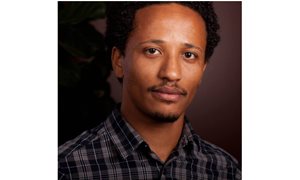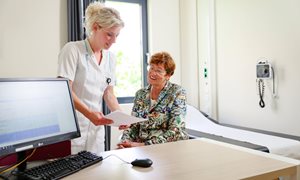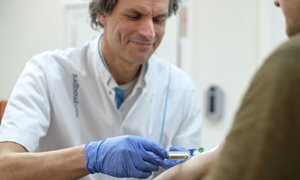12 July 2018
We live in an increasingly digitalized world. Billions of smartphones let people participate in the online world, often for several hours per day. Particularly during the last decade, digitization rapidly changed our society including healthcare. Moreover, it changed how we conduct research: recruitment of study participants takes place through Facebook, tweets and online search behavior are analyzed to learn from the public, artificial intelligence supports us in medical decision making, and data are collected ‘while people are living their lives’ with wearable devices or user-friendly smartphone apps. The near future will be even more different from what we see today: we will use voice recognition, augmented reality, and robots as interventions or data collection tools.
As RIHS, we want to be aware of these new opportunities for research, including:
• Facilitate citizen science, patient participation, and societal impact
• Benefit from innovative ways of funding, recruitment, data collection, and dissemination of study results
• Efficient collaboration with colleagues around the globe
Over the past two years, Marleen van Gelder, PhD (Department for Health Evidence) and the Radboudumc REshape Innovation Center (REshape) have worked together on digital health. This resulted in several publications about dynamic online content (social media and online search behavior) to predict MRSA outbreaks, collecting real life data and citizen participation with smartphone apps, strategies for optimal recruitment and a framework for ‘dynamic informed consent’ for big data research. Regarding this fruitful collaboration, I have invited Tom to support not only HEV but also RIHS regarding this topic for one day per week. Tom is currently employed at REshape as assistant professor of digital health. His research projects are focused on real life data collection and patient participation.
As a start, we will organize an interactive session in which we will provide an overview of existing opportunities regarding real life data collection on 25 September 2018. I encourage you to participate in this session and share your suggestions or questions in advance.
I welcome Tom to the RIHS team.
Bart Kiemeney
 Many RIHS researchers are exploring innovative ways to conduct their research. To encourage this, it is now possible to receive support regarding new opportunities for data collection and participation by end-users.
Many RIHS researchers are exploring innovative ways to conduct their research. To encourage this, it is now possible to receive support regarding new opportunities for data collection and participation by end-users.
We live in an increasingly digitalized world. Billions of smartphones let people participate in the online world, often for several hours per day. Particularly during the last decade, digitization rapidly changed our society including healthcare. Moreover, it changed how we conduct research: recruitment of study participants takes place through Facebook, tweets and online search behavior are analyzed to learn from the public, artificial intelligence supports us in medical decision making, and data are collected ‘while people are living their lives’ with wearable devices or user-friendly smartphone apps. The near future will be even more different from what we see today: we will use voice recognition, augmented reality, and robots as interventions or data collection tools.
As RIHS, we want to be aware of these new opportunities for research, including:
• Facilitate citizen science, patient participation, and societal impact
• Benefit from innovative ways of funding, recruitment, data collection, and dissemination of study results
• Efficient collaboration with colleagues around the globe
Over the past two years, Marleen van Gelder, PhD (Department for Health Evidence) and the Radboudumc REshape Innovation Center (REshape) have worked together on digital health. This resulted in several publications about dynamic online content (social media and online search behavior) to predict MRSA outbreaks, collecting real life data and citizen participation with smartphone apps, strategies for optimal recruitment and a framework for ‘dynamic informed consent’ for big data research. Regarding this fruitful collaboration, I have invited Tom to support not only HEV but also RIHS regarding this topic for one day per week. Tom is currently employed at REshape as assistant professor of digital health. His research projects are focused on real life data collection and patient participation.
As a start, we will organize an interactive session in which we will provide an overview of existing opportunities regarding real life data collection on 25 September 2018. I encourage you to participate in this session and share your suggestions or questions in advance.
I welcome Tom to the RIHS team.
Bart Kiemeney
Related news items

A great technology creating new dilemmas
20 December 2022Healthcare professionals are increasingly uncovering ‘unsolicited findings’ when performing a genetic test, which are disease-causing genetic variants unrelated to the initial question for which the genetic test was performed. This increase has led to a worldwide debate.
read more




